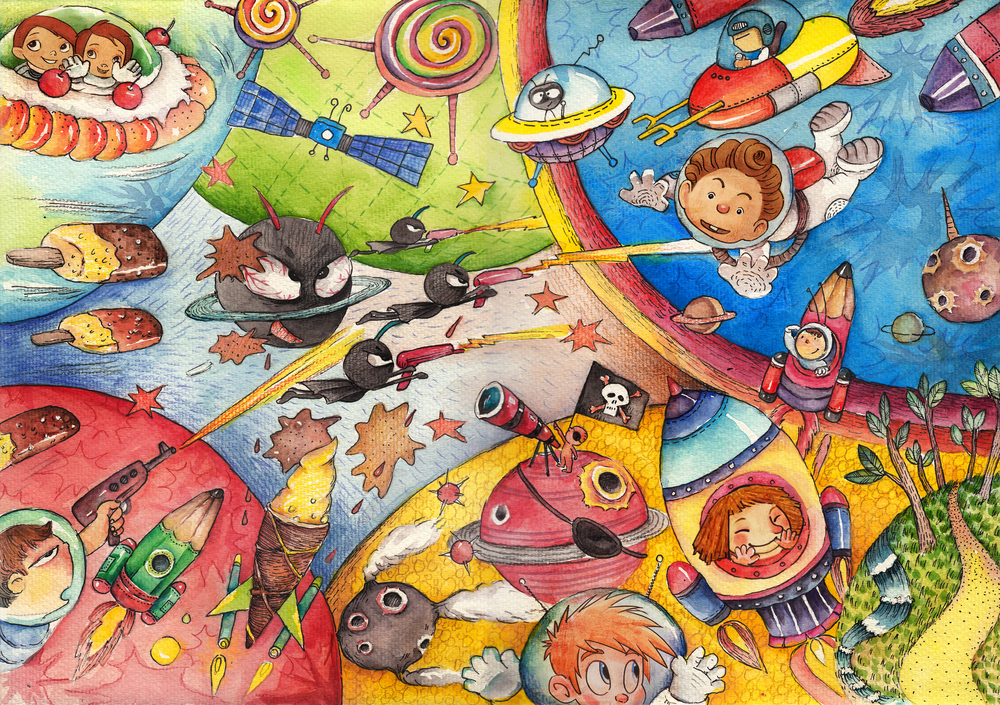Relationships
How to avoid fighting in front of your kids?

The relationship between parents and how conflicts are handled on a daily basis is crucial for a child's emotional, physical and academic well-being.
A child’s feeling of safety and security is present when his/her parents are getting along well. This allows the child to freely and confidently explore his/her world and surroundings.
Marital conflict is inevitable, and it is a normal phenomenon in every marriage. In terms of the effect of marital conflict, what is more important than whether or not parents fight in front of their children, is how the conflict is expressed and resolved, and especially how it makes the children feel.
In general, if conflicts are mild to moderate and parents handle arguments constructively by showing support, respect, love, compromise and positive emotions, children can learn positive lessons and develop better social skills and self-esteem.
It is important to model to our children that anger is a normal, valid emotion that can be expressed in a healthy way using “I statements” and assertive communication.
Healthy communication and emotional expression reassure children that parents can work through challenges and it teaches them how to handle their own anger rather than repressing/not verbalizing their true emotions.
When conflict is handled constructively, children learn that couples can disagree/argue and still be happy and love each other.

On the other hand, the data is clear in showing that constant, unresolved and destructive arguments lead to many problems in children of all ages including low confidence, loss of self-esteem, sadness/depression, hopelessness, suicidal ideation, anxiety/worry, substance use, adjustment problems and an ongoing state of fear.
Those problems may be classified as follows:
1.Emotional and social problems
Some children may develop externalizing disorders and react outwardly with anger, displaying aggression and behavioral problems at home and school.
Socially, children raised in environments of destructive conflict may have intimacy problems and struggle with forming healthy, balanced relationships.
2.Physical and health problems
Children who grow up in homes with high levels of conflict can develop physical and health problems (e.g., frequent illnesses, lowered immunity, increased cortisol levels, vascular problems, headaches and stomachaches) as well as sleep problems (e.g., poor sleep quality, nightmares and difficulty falling asleep).
Some research suggests that when infants as young as six months witness bickering, arguments, hostility, defensiveness, and physical fights their blood pressure increases. Infants absorb the conflict and try to figure out what it means even if they do not understand the words spoken.
3.Academic and learning problems
These problems are also common as children are under constant threat and stress and that interferes with their ability to focus, memorize, concentrate, complete school work or study for tests.
4.Several destructive and hostile strategies that parents may use that harm their children
These include:
- Verbal abuse (e.g., name-calling, threats of abandonment and insults)
- Physical violence and aggression (e.g., hitting, pushing, shoving, and throwing things at your partner)
- Giving the silent treatment (e.g., avoidance, storming out, sulking, stonewalling, refusing to communicate/cooperate, or withdrawing).
- surrendering/capitulating (e.g., giving in to end the argument rather than finding a true solution).

Overall, children learn what they live and they never habituate or “get used to” family stress. Therefore, it is important to make the commitment to avoid fighting in a destructive manner in front of your children.
In my previous articles, I discussed ways to deal with conflict constructively.
Here are some additional tools that will help you resolve conflict constructively, maintain a loving relationship and role-model effective problem-solving and communication skills for your children:
- Walk Away
Regardless of what your spouse does, if anger is escalating and the conflict is going out of control, tell your partner that you will walk away from the discussion because it is causing more harm than good.
Practice controlling your impulsive behaviors as a way to extend your love and care to your children.
Keep in mind that their peace and well-being is more important than exploding in anger.
- Write Down Your Emotions and Thoughts
This will help you remember the points you want to discuss later when you are both calm and thinking clearly.
Make sure that you schedule an appropriate time to discuss your conflict in the absence of the children.
- Make a Commitment with Your Partner to Discuss Issues Privately and Find a Visual Cue
Agree on a visual cue with your partner, such as raising your hand, to indicate that a fight is brewing and that time-out from the discussion is needed. Take a deep breath and agree to discuss this at a time when the children are not present.
- Open up, Share Your True Feelings and Communicate Your Needs
Explore and express the root of your anger. Is it fear, hurt, sadness, or frustration (or all four)? After doing that, calmly verbalize your needs to your partner directly and specifically.
Do not assume that your partner reads your mind or knows your feelings or needs.
- Empathy. Let it be Your Compass
Start your discussions by letting your spouse know that you see them, you hear them, you care about them, you want to understand them and you will try to put yourself in their shoes.
For example: “I understand you are under a lot of stress at work, and I also would like us to carve out some family time.”
- Soft Start-Ups
Remind yourself that you love your partner and add words of endearment such as, honey, babe, sweetheart.
- Find a Solution Together as a Team
Give your partner the benefit of the doubt and assume the best intentions. Solve the problem together cooperatively, not competitively when you are both calm. Make sure you both “own” the solution and assume responsibility for your part, while also suggesting different actions that your partner can take rather than blaming each other.
- Say it with Kindness and Affection
Reaffirm your bond (e.g., a hug/kiss/looking into each other’s eyes) and enjoy the peace after your resolve the conflict and decide on future action steps.
- Repair the Damage
If your children witnessed your fight, you can tell them: “Mom and Dad were upset with each other. Sometimes, people disagree and we understand it might have been scary for you to see that. But we still love you and we still love each other so much.” Provide your children with affirmations of your love for them and list things that make them special and unique.














